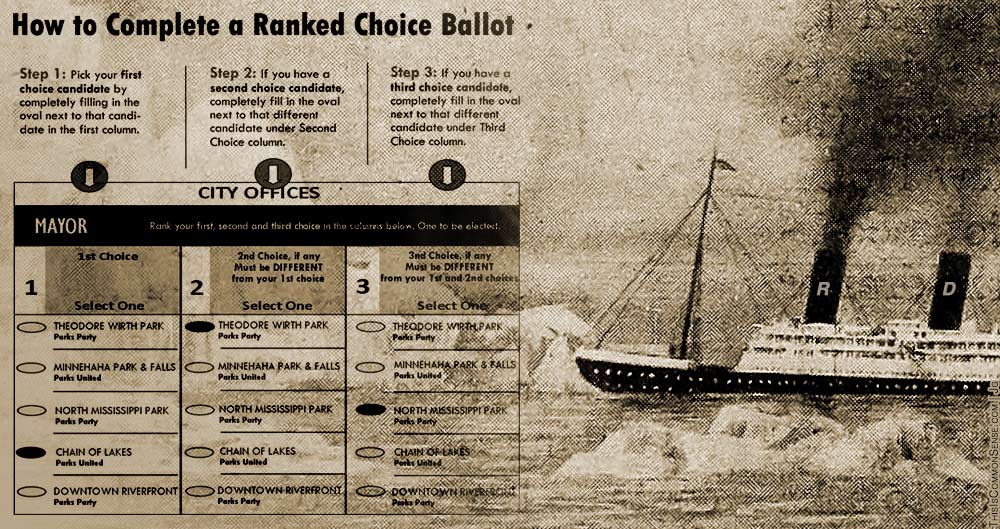The Republican Party now boasts of more positions of power than … ever? And yet the GOP is in danger of falling apart.
The Democrats, now forced to endure Hillary Clinton’s new absurdity, What Happened, appear at wits’ end. They just do not “get it.”
Alas, “not getting it” is not limited to the major parties. The Libertarian Party (which is my subject this week) has been around since 1972 … doing the same things over and over … with spectacular lack of electoral success.*
Sure, the party has had no small subtle influence — perhaps most notably the change in marijuana policies. Yet it could have even more. Without electing anybody, as I argued yesterday.
But that’s just the tip of the Titanic-killer.
Not only could party organizers threaten the major parties with running — and taking away votes — based on their candidates’ positions, Libertarian organizers could also threaten to run against candidates who will not publicly take up the cause of electoral reform.
Particularly, ranked choice voting.
Because of our first-past-the-post elections, Libertarians tend to take away votes from those most similar to themselves. With ranked choice voting (see a sample ballot), a voter whose favorite is a Libertarian will have his second-favorite choice count** towards that candidate; minor party candidates would no longer work as spoilers.
And that would allow voters to embrace their real preferences, not pretend to like candidates they actually distrust.
Since major party candidates would, in most circumstances, be hurt less by those closest to them, they should be willing to be “blackmailed” on this.
Jumping into the briar patch of supporting fresh reform to stop the spoilers.
This is Common Sense. I’m Paul Jacob.
* The 3 million odd votes for the Johnson/Weld presidential ticket, though a leap ahead from previous outings, was seen by many as a disappointment: that’s all the dynamic duo of former governors could do in a year with the unpopular duo of Trump and Clinton as R and D standard-bearers?
** That is, in cases where only a small percentage of the vote favors the Libertarian most.











